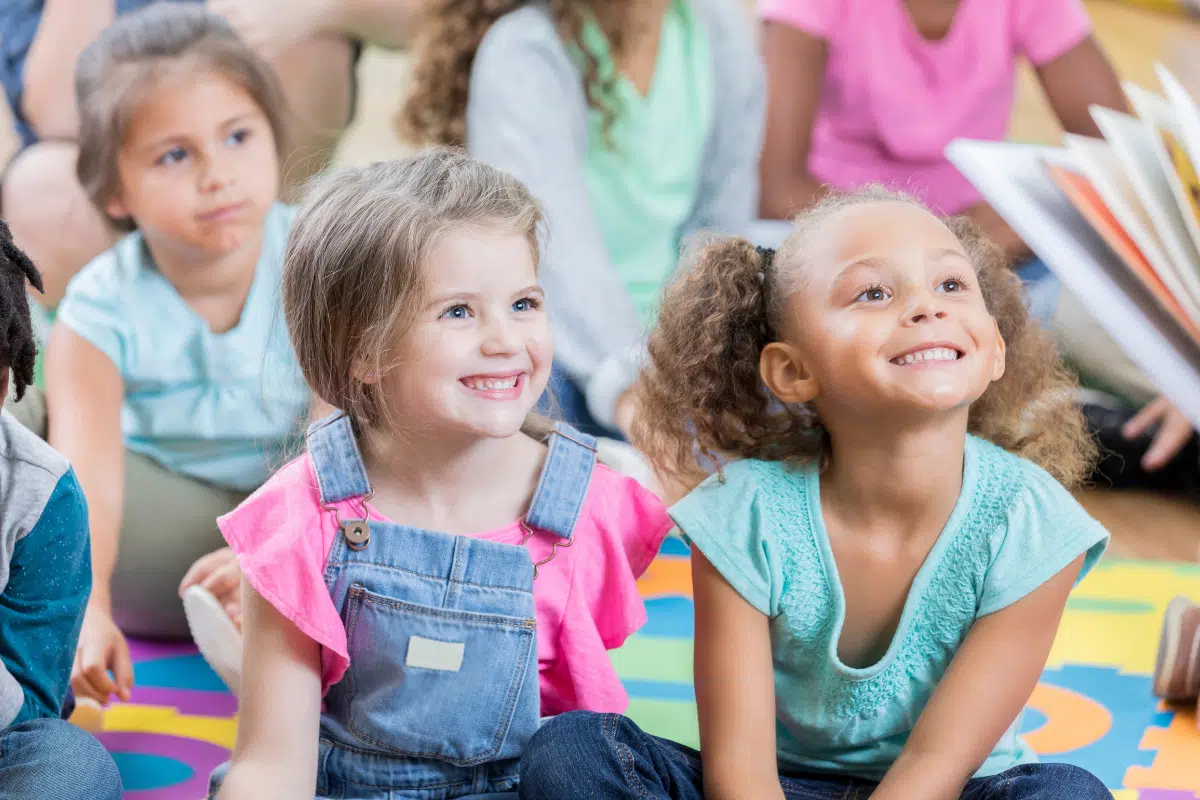
At the heart of your child’s early learning journey is a simple, beautiful truth: your involvement matters. Understanding parent and family involvement in early childhood education isn’t just about school—it’s about fostering a bond with your little one that goes beyond the classroom. Your involvement can shape your child’s future, academically, socially, and emotionally.
What is Parent Involvement in Early Childhood Education?
Parent and family involvement in early childhood education means actively participating in your child’s educational journey. It’s the collaboration between families and schools to ensure kids get the most enriching experiences as they grow.
Here’s what involving parents for successful early learning looks like:
- Early learning: Engage with your child in age-appropriate activities and explore the world together through play and discovery.
- School: Be there for school or early learning centre events and help out where you can.
- Home: Assist with homework, plan fun learning activities, and enjoy reading times together.
- Teamwork with teachers: Connect with them to make sure what’s taught at school and home are in sync. It’s about parents and teachers being on the same page and emphasising parental involvement in early education.
- Community activities: Get involved in local events or groups, helping your child learn and socialise.
In essence, it’s all about being there, in big or small ways, to support your child’s journey from the very start.
Benefits of parent involvement in early childhood education
Why is involving parents for successful early learning important? Your child can get ahead with the academic, social, and emotional benefits of family engagement in early childhood education.
Nurtures Emotional Intelligence
Your close bond with your little one can help them develop emotional intelligence. Studies, including one from the University of Cambridge, showcase the profound emotional benefits stemming from parental involvement in early childhood.
Here’s a breakdown of these advantages:
- Deepened bonds: When you’re actively involved, it creates a warm, loving bond that acts as the bedrock for your child’s emotional security.
- Increased kindness: Children tend to exhibit more kindness towards their peers, showcasing an understanding of others’ feelings.
- Heightened empathy: Parent involvement in early childhood nurtures a child’s ability to put themselves in another’s shoes, understanding and respecting their emotions.
- Prosocial behaviour: Beyond just kindness, children are more likely to display helpfulness, generosity, and even volunteering.
- Lower risk of mental health challenges: A loving bond in early childhood can be a protective factor against certain mental health difficulties in later years.
- Fostering resilience: Children are better equipped to handle challenges and bounce back from setbacks when they know they have a supportive parent cheering them on.
- Growth in generosity: Engaging activities that involve sharing or giving can instil a natural tendency towards generosity in children.
- Positive social interactions: With a solid emotional foundation, children navigate social settings with grace, building healthy relationships with peers.
The importance of family involvement in early childhood education is immeasurable. Every hug, every conversation, and every shared moment is helping your little one be the best they can be!
Sets Your Child Up for Academic Success
Parents’ involvement in early childhood education isn’t just good for bonding; it has proven academic benefits for young ones.
- Jumpstart in reading: Sharing reading moments can ignite a love for words, letters, and sounds, setting the stage for future success.
- Easing into school life: Studies, including the one we discussed earlier, indicate that children with involved parents transition from home to school with greater ease and confidence.
- Consistent school days: Your active role can lead to fewer missed school days, and we know consistent attendance boosts learning.
- Boosted drive: Knowing you’re rooting for them at every step provides that motivational nudge to strive for excellence.
- Friendship skills: Your guidance in their early childhood education journey can pave the way for better peer relationships.
- Staying the course: Children with engaged parents often have higher graduation rates, a fact backed by multiple studies.
- Igniting curiosity: Engaging with them at home, asking questions, and exploring together can spark a lifelong passion for learning.
- Value of learning: Your commitment to their education teaches them the lasting importance of learning, driving them to reach higher.
- Closer bonds with teachers: Your active participation fosters more positive relationships between your child and their educators.
When schools and families unite with the shared goal of enhancing student learning and wellbeing, it creates an environment ripe for academic success.
Parents, what is family involvement in early childhood education? It’s not just beneficial; it’s transformative. Every book you read, every question you answer, and every school event you attend leaves a lasting impact, supporting your little one towards a brighter academic future.

Shichida Australia Early Learning Supports Parents as First Teachers
At Shichida Australia Early Learning, we’re not just thinking about your child’s education – we’re thinking about you too. We truly believe in the magic that happens when parents are actively involved in the beautiful journey of early childhood education.
Here’s how we ensure you’re an integral part of our program:
Join the Fun in Classes
Especially during the baby and toddler phases, we invite you right into the heart of the action! When your little one is engaged in activities, you’re right there with them. This isn’t just about observing – it’s about actively participating. You’ll be directly involved in the activities, games, and learning experiences, making those magical moments even more special.
Discovering the ‘Why’ Together
Ever wondered, “Why is family involvement important in early childhood education?” By being part of our classes, you’ll experience the answer firsthand. It’s not just about your child learning; it’s about you understanding the essence of our approach, seeing the methodologies in action, and grasping the profound impact it can have.
Bringing Shichida Home
We understand deeply why parental involvement is important in early childhood education. Involving parents for successful early learning is one of the educational pillars that our learning method is based on. Not only do we immerse you in our in-class activities, but we also equip you with the knowledge and tools to extend the Shichida experience at home.
We provide guidance on activities for parent involvement in early childhood programs that mirror what we do in class, ensuring continuity in your child’s learning journey, even outside our walls.
In essence, family involvement in early childhood education is the cornerstone of the Shichida Method. There’s nothing quite like seeing your child’s potential unfold in real-time. And at Shichida, you won’t just hear about their progress – you’ll see it, celebrate it, and be a key part of it!
Ideas for Family Involvement in Early Childhood Education
Crazy busy schedules are all too common for many families today. Yet, as we’ve just explored, staying engaged with your child’s education offers many emotional and academic benefits.
So, despite the hustle and bustle of daily life, it’s important to find those moments of connection.
For Infants and Toddlers:
Story Time: Carve out a small window each night for a bedtime story. It’s a peaceful end to the day and introduces them to the world of literacy early on.
Musical Moments: Play lullabies or simple songs during car rides or at home. It helps with their auditory development.
Tactile Play: Invest in sensory toys and spend time playing together. It aids in their sensory and cognitive development.
For Preschoolers:
Weekend projects: Dedicate some time over the weekend to fun, educational DIY projects. It could be as simple as making homemade playdough or building a cardboard castle.
Kitchen helpers: Cooking together can be an educational experience. They learn measurements, ingredients, and the joy of creating something.
Puzzle time: Puzzles are a fantastic way to foster cognitive development in children. They challenge young minds, improve visual memory, and hone problem-solving skills. If you’re in search of an engaging puzzle for your little one, check out the Shichi Duck Puzzle.
Nature walks: Even a short walk in a nearby park can be turned into a learning adventure. Discuss the different plants, animals, and elements you encounter.
For Early Primary School Kids:
Reading time: There’s something magical about the bond formed while reading with your child. Not only does it introduce them to the wonders of stories, but it also fosters their language and cognitive skills. Make reading a cherished routine, whether it’s during quiet afternoons or just before bedtime. If you’re looking for a set that is both educational and engaging, consider exploring the Speak Up Stories series.
Homework corner: Even if you’re busy with chores, create a designated space in the living area for their homework. This way, you can be present and available for any questions while multitasking.
Digital updates: Many schools now use platforms or apps to update parents on their child’s progress. Set reminders to check these regularly, so you’re always in the loop.
For All Ages:
Calendar sync: Why is parental involvement important? Because children thrive with routines. Sync your calendar with school events, ensuring you’re present for the significant milestones, even if it’s a brief appearance.
Engage in discussions: Regularly ask open-ended questions about their day, friends, and what they learned. It shows you care and keeps you updated.
Participate digitally: If you can’t make it to school events, check if they offer virtual participation. It’s the age of technology, and many activities for parent involvement in early childhood programs are now available online.

The importance of parental involvement can’t be understated. Involving parents for successful early learning is crucial. With every interaction and effort to stay engaged, your child receives a powerful message: they feel supported, they feel seen, they feel loved.
Together at Shichida Australia, we can chart an extraordinary path for your child and set them on a trajectory towards boundless opportunities. Book a trial class today!


